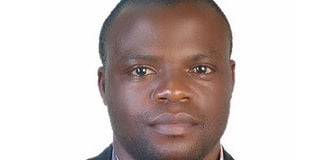Prime
In office but not in power: Dilemma of the Rwenzururu Kingdom

Chrispus Mayora is a Rwenzururu Kingdom subject.
It is nearly 7 months since the Obusinga-Bwa-Rwenzururu (OBR) was engulfed in a crisis that came to be one of the kind in recent history of the kingdom. Up to now, we are yet to get the official figures that attempt to quantify the loss. While it is immoral to reduce human life to just figures and numbers, these figures are important so as to examine the extent of the loss.
At least the indisputable facts are: That people lost lives, several sustained injuries, and missing persons remain unaccounted for . It is also true that a number of individuals were arrested and are currently answering to various charges in different courts, including the Omusinga Charles Wesley Mumbere. The King, however, is out of prison on bail, whose terms we understand, allow him restricted freedom within the confines of Kampala, Wakiso, and Jinja districts and a regulated schedule of visitors.
The bail terms essentially created a situation of an absentee landlord with virtually no control over his property and the developments there on. While the landlord may claim to have interest in the property, he has no mechanism of enforcing, let alone guarding those interests.
In allowing the creation of cultural institutions, the 1995 Constitution ably recognised the role they would play in socioeconomic, cultural, and community transformation. The perception was, however, premised on the understanding that cultural leaders would effectively be in charge of their institutions, would guide their people, and act as symbols on which communities coalesced for unity and development. However, lately, we have witnessed challenges within many cultural institutions to the extent that even the hitherto unity that existed seems to be under test. These challenges relate to either multiple claims to kingship, land, and new cultural institutions within existing ones. Sometimes, conflicts have resulted from either a failure to understand (or at times shear disregard of) the constitutional mandate of cultural institutions, coupled with a misplaced thinking that cultural institutions superintend over geographical territory rather than people.
One may argue that the crises witnessed in the OBR are part of a struggle to liberate the institution from the historical forces of old monarchism and re-align it to an institution existing and serving within the 21st Century realities. This will not be a simple path, and thus a clarion call to all stakeholders to play a part. Strong leadership becomes apparent more than ever before as we walk this journey. Unfortunately, the leader is essentially out of action – on account of his bail terms. The absence of the leader has undeniably created a leadership vacuum that unfortunately, may be taken advantage of by forces of confusion, disunity and anti-development.
For example, one perennial claimant to the Obusinga kingship has been in the media positioning himself as the “new hope”, but the State has been conscious this time to listen to him.
Last week, the dailies reported that King Mumbere had shuffled his cabinet, essentially bringing new, intellectual and young blood into the fold. As communicated, the reshuffle aimed at reorganising the institution for effective service delivery. The shuffle is good for reawakening the spirit of togetherness for a community that has been deprived of the much needed cultural leadership.
To some people, however, it is a response to intrinsic pressure for the leader to reaffirm his existence, his authority, and his being in charge. While these actions are reassuring, they can be looked at as an exercise of office mandate, but essentially with no much control and influence over the happenings back home.
Recently, Theresa May, the UK Prime Minister, was quick to understand her dilemma and immediately started in working out fixes. Following a horrifying election loss in the June 8, election and realising she had lost control of Parliament, she remarked “I am in office, but not in power”. She is now engaged in negotiations with the Democratic Union Party (DUP) of Ireland to ensure to regains both her office and power.
The OBR must realise that to reoccupy its space and get back to work, it must negotiate with government. But an environment should be created for the leader to be part of this process.
Mr Mayora is a Rwenzururu Kingdom subject. The comment was co-authored by Edwin Kamalha.


